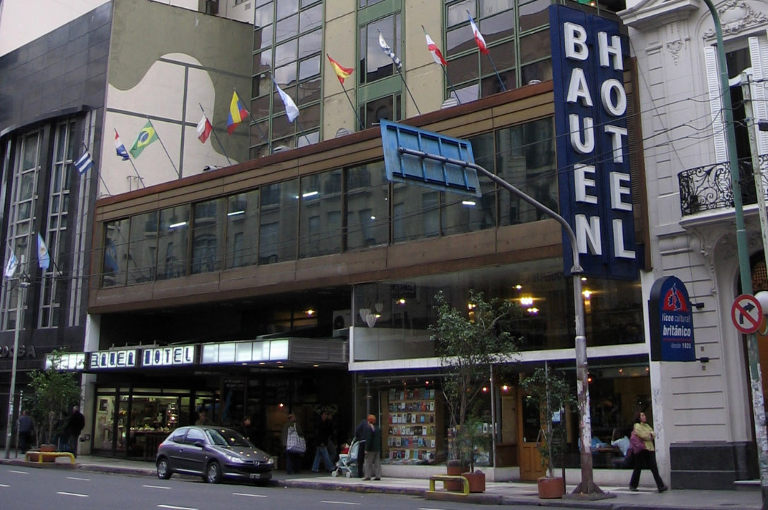Solidaristic principles prove great in theory, but how do they hold up in practice? Specifically, in communities facing historical divestment and disenfranchisement, can mutualism and cooperativism serve as building blocks for crafting more equitable, sustainable economies and societies?
A growing number of Latin American communities are proving (through the innovative application of solidarity principles) that it’s possible to reimagine our relationship to resources, capital, and collective well-being, all while creating sustainable, people-centered systems along the way.
Haiti’s cooperative cocoa industry
Haiti has a long history of economic and political instability due to centuries of imperialistic exploitation. In recent history, Feccano, a federation of cocoa cooperatives based in northern Haiti, became a beacon of hope for local farmers, who have established an active network of exchanges that prioritize ecological sustainability and farmer profits.
To date, the group has grown to include over 4,000 farmers, becoming the first Haitian enterprise and farmers’ co-op to export fermented cacao.
Puerto Ricans push for sustainable energy democracy
Following the devastation caused by Hurricanes Maria and Fiona, the vulnerabilities of Puerto Rico’s failing energy infrastructure came center stage. Years of divestment and mismanagement of the island’s privatized energy provider, LUMA Energy, left many under-protected in the event of a disaster.
In the aftermath, collective civilian responses to restore power ignited a movement that heralds community-based energy resilience, with many groups like Casa Pueblo and ACESA, championing solar as an alternative to fossil-fueled electricity.
Zapatista calls for food sovereignty in Mexico
Zapatista is an indigenous revolutionary group based in Mexico’s southeast region. With over 25 years in operation, the group has established political and social influence on a nationwide scale. Their main objectives are to ensure the preservation of indigenous rights, autonomy, and survival.
Chief among their initiatives is their fight to establish food sovereignty within their community. This means organizing a demonstrated divestment from large-scale industrial food production in favor of community-based agricultural development.
Uruguay’s cooperatives provide a replicable model for housing justice
FUCVAM (Federación Uruguaya de Cooperativas de Vivienda por Ayuda Mutua, Uruguayan Federation of Mutual Aid Housing Co-operatives) is a federation of mutual aid housing cooperatives based in Montevideo. FUCVAM’s approach to addressing housing insecurity centers on the collective development of housing and urban infrastructure — and it’s proved to be a successful and sustainable model.
As the country’s largest and oldest housing collective, FUCVAM’s success has led to the regional adaptation of its model in more than 15 countries around Latin America.
Argentina’s cooperatives address health & economic crises
In the aftermath of Argentina’s 2001 financial crisis, workers across the country rallied to gain control of empresas recuperadas (companies recovered from bankruptcy by falling into worker control), establishing a network of cooperatively owned businesses that spanned industries. When the Occupy Buenos Aires movement ignited around 2014, the push toward a more just economy gained even more traction.
At the onset of the Covid-19 crisis, as the failures in traditional capitalistic approaches to economic and collective healthcare were laid bare, the resilience and adaptability of cooperatives provided vital pathways to economic and health recovery. Farmacoop, Argentina’s first laboratory empresas recuperada was integral in the production of local, affordable medical treatments and also developed the first Argentine Covid-19 antibodies test.
Explore more Latin American solidarity economies
This list is just a snapshot of movements and organizations. Across Latin America, there are many examples of communities utilizing solidaristic principles to craft community-specific solutions that address systemic issues and inequities.
For an exhaustive list of Latin American solidarity economies, browse this resource guide compiled by our partners at New Economy Coalition.
And, if you’re interested in exploring this topic further, check out “Solidarity Economy in Latin America”, a 10-part podcast/video series created by students at the University of Virginia.
This article originally appeared on Shareable.net.
Teaser photo credit: The Hotel Bauen, a prominent worker-run “recovered enterprise” in Buenos Aires. By Brian Zbriger – https://www.flickr.com/photos/brian_z/242103876/, CC BY-SA 2.0, https://commons.wikimedia.org/w/index.php?curid=1168177





